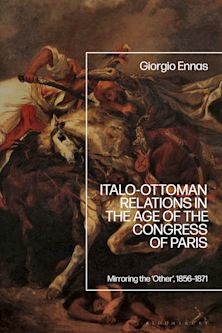The Rise and Fall of Socialist Yugoslavia
Elite Nationalism and the Collapse of a Federation
The Rise and Fall of Socialist Yugoslavia
Elite Nationalism and the Collapse of a Federation
This product is usually dispatched within 3 days
- Delivery and returns info
-
Free CA delivery on orders $40 or over
Description
This book examines the relationship between nationalism and the rise and fall of Yugoslavia under the rule of Josip Broz Tito. It deals particularly with the interactions between communist and intellectual elites. The authors analyze elites’ initial enthusiasm about the Yugoslav federation and how, with time, they found themselves unable to suppress the nationalists in Yugoslavia. Other scholars have argued that, in a certain sense, Tito’s Yugoslavia proved to be a “hatchery” for the nations that once constituted Yugoslavia, making them ever closer to “completeness.” However, as the authors highlight in this study, this process was one of conflict. The personal role of Tito as an arbiter was essential, although, for the majority of his time in power, he did not act as a dictator. His departure was strongly felt in the 1980s, when ethnic entrepreneurial activity began to flourish—and when ethnic and political relations had gone out of control. While a significant part of this book follows the chronology of ethnic elite interaction in communist Yugoslavia, the global context of Yugoslavia’s rise and fall is taken into account. The authors also use Yugoslavia as a case study to test the validity of nationalism studies more generally.
Table of Contents
CHAPTER 2: COMMUNIST “DICTATORSHIPS”
CHAPTER 3: WAS “TITO'S” YUGOSLAVIA TOTALITARIAN?
CHAPTER 4: TITO'S “LETTER” INTERVENTION IN 1972
CHAPTER 5: DENOUEMENT: THE EIGHTIES
CHAPTER 6: SECESSION, DISUNION, DISSOLUTION, CESSATION: BETWEEN THE LEGAL AND THE FACTUAL
CHAPTER 7: THEORETICAL EXPLANATIONS OF THE DISSOLUTION OF ETHNICITIES AND NATIONALISM
CHAPTER 8: THE ECHOES OF YUGOSLAVIA: HOW DID THE POST-YUGOSLAV STATES FARE AND DOES THE YUGOSLAV CASE HOLD ANY RELEVANCE IN THE EUROPEAN CONTEXT?
Product details
| Published | Oct 20 2021 |
|---|---|
| Format | Paperback |
| Edition | 1st |
| Extent | 386 |
| ISBN | 9781498541985 |
| Imprint | Lexington Books |
| Illustrations | 2 b/w illustrations; 6 tables; |
| Dimensions | 219 x 153 mm |
| Publisher | Bloomsbury Publishing |
Reviews

ONLINE RESOURCES
Bloomsbury Collections
This book is available on Bloomsbury Collections where your library has access.




























